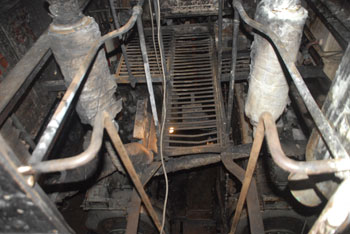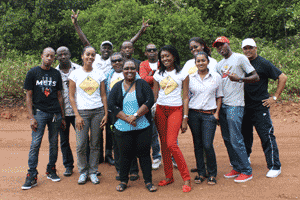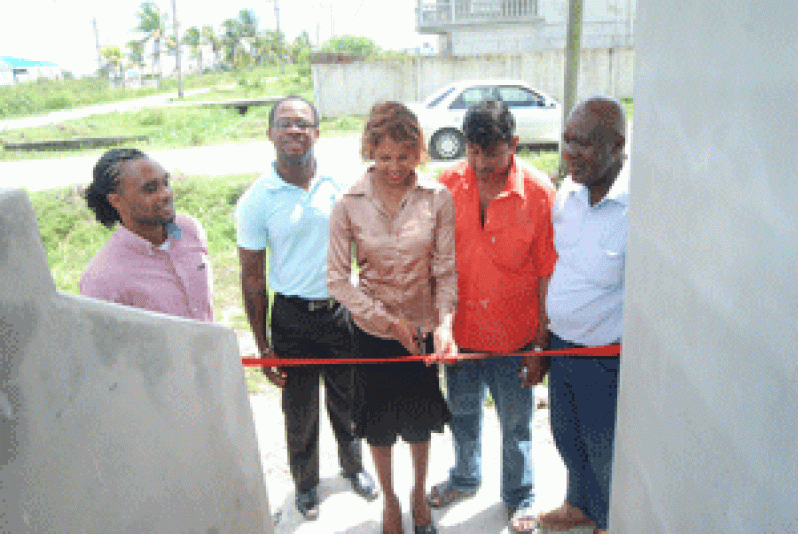Kwakwani certainly leaves its indelible mark on a visitor’s memory.
The picturesque scenes are almost breathtaking as one travels the trail by bus; and although the journey takes a few hours, the trip is certainly unforgettable.
 I started my trip travelling from Georgetown to the mining town of Linden in a 32-seater bus proceeding at moderate speed along the way. Although this was my second visit to Kwakwani, it was the first time I was travelling overland, since my first visit was by aircraft.
I started my trip travelling from Georgetown to the mining town of Linden in a 32-seater bus proceeding at moderate speed along the way. Although this was my second visit to Kwakwani, it was the first time I was travelling overland, since my first visit was by aircraft.
I could not help noticing that the loam road was well paved and graded. Except for a few large puddles of water and some potholes, the makeshift road was passable and quite delightful to travel on, making the journey bearable.
The lush, vast savannahs that seemed to extend into forever were a standout, resembling those en route to Lethem; and the rich vegetation lining each side of the trail providing shelter from the blazing sun.
The busload of fellow travellers was most delighted to stare awe-struck at the verdant scenery unfolding before our eyes. Families of monkeys could be seen hurriedly negotiating the trail from one side to the other, and there were some interesting birds to look at.
our eyes. Families of monkeys could be seen hurriedly negotiating the trail from one side to the other, and there were some interesting birds to look at.
To access Kwakwani, one has to cross the Berbice River on whose bank the isolated village of some 7,000 inhabitants nestles neatly.
The village itself resembles a scene out of a Western movie, where age old buildings, landmarks and several interesting bars, shops and restaurants line the area, which stretches for what seems like miles.
Most children and teenagers could be seen engaged in a competitive game of basketball, the favoured sport in Kwakwani. Adults were busy manning shops and other businesses. Villagers told this publication that many persons  had been employed with the thriving bauxite company, but now logging has become one of the main sources of income for residents, since many had ventured into that enterprise.
had been employed with the thriving bauxite company, but now logging has become one of the main sources of income for residents, since many had ventured into that enterprise.
Residents engage in very little mining and farming activities, but spend more time in the library, the football field, the market, and at the many hangout spots strategically placed in the village.
Some villagers said there is no need for them to venture into the city. There are many, who would have spent almost their entire lives in Kwakwani. Several women who took time to chat with us said they would remain in Kwakwani because crime is non existent and people co-exist quite peacefully, free of noise nuisance and garbage problems, and being able to enjoy the multiplicity of smiles that come their way daily.
Kwakwani is home to many children, some of whom were observed casually bathing in the Berbice River.
I found the beautiful sunset that greeted me on my way out of the village to be most enthralling. It was very bright and was almost like a painting, and almost everyone on the trip utilised the opportunity to take a snapshot like “town came to country”. Some even said that they had never previously witnessed such a sunset.
Kwakwani Village is located on the Berbice River bank in the Upper Demerara/Upper Berbice region. It lies approximately 40 km south of Linden.



.jpg)











